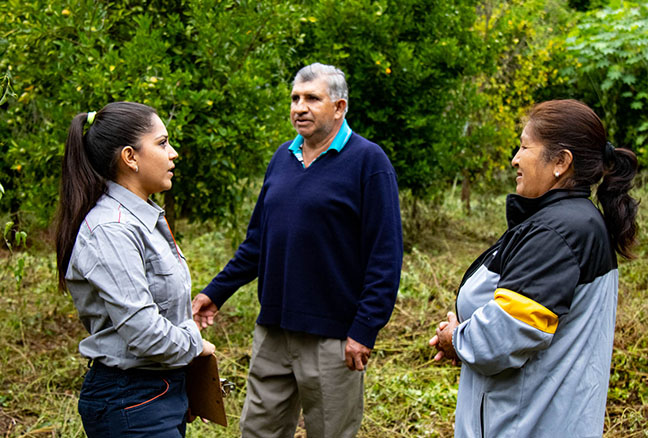Our ongoing search for proactive, transparent, continuous, and participatory dialogue
We involve the indigenous communities in the areas where we operate from the project's very early stages, keeping in mind the respect for human rights, especially for those most vulnerable groups of people:
- Our grievance mechanisms are readily accessible in our operations to ensure dialogue and fluid communication with the different communities.
- With the aim to strengthen this commitment, we promote compliance with these channels among our suppliers wherever we operate.
- Moreover, in some of our operations, like industrial facilities, there are 24-hour telephone helplines available at our industrial complexes, which have protocols for internally receiving, recording, and dealing with complaints made by a community.
- We respect and take into consideration the work of rights defenders, and in no way do we block or misrepresent communications that take place.
Understanding and respecting the unique nature of indigenous peoples
We undertake to recognize and respect the internationally recognized rights of indigenous, tribal, aboriginal, and native peoples (Indigenous Peoples), in accordance with current laws and following the requirements of the International Labor Organization’s Convention (ILO) No. 169 |PDF| 493 KB, regardless of whether or not it is included in the legislation of the country in question.
Through baseline social studies that we carry out at our operations and with the participation of governments and local, regional, and national organizations that represent indigenous peoples, we identify those indigenous communities that are in different phases of contact with the majority culture and that may be affected by our operations.
Establishing dialogue and a close-knit relationship with indigenous communities
To maintain a relationship of trust and mutual respect with the communities close to our operations, based on transparency and shared value, we work on our dialogue:
- Adapting it to the cultural characteristics of each ethnicity or community, and involving representative bodies of indigenous communities.
- Guaranteeing the representation of men and women, the diverse age groups, and leaders according to their traditions.
- Recognizing and respecting the right to prior, free, and informed consent (PFIC) of indigenous peoples through their representative institutions.

